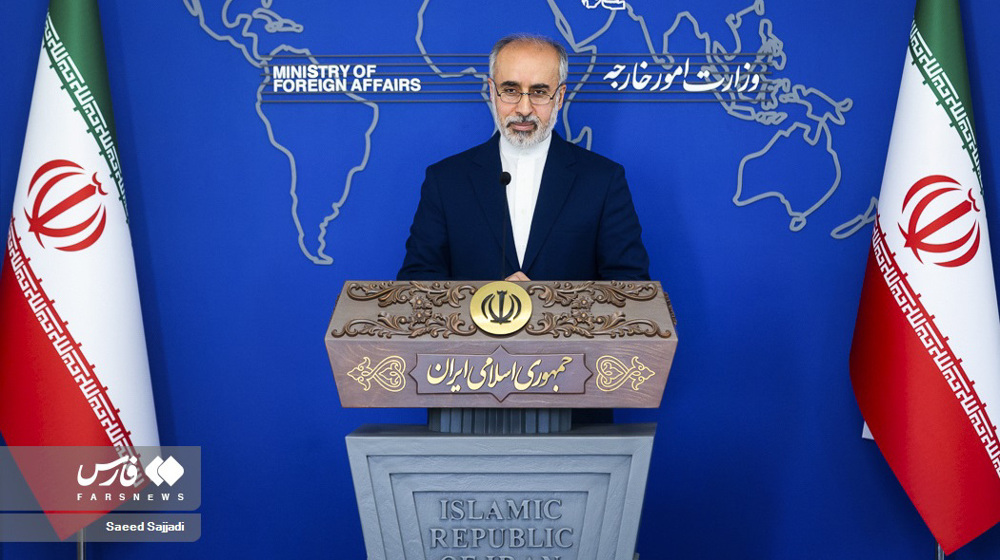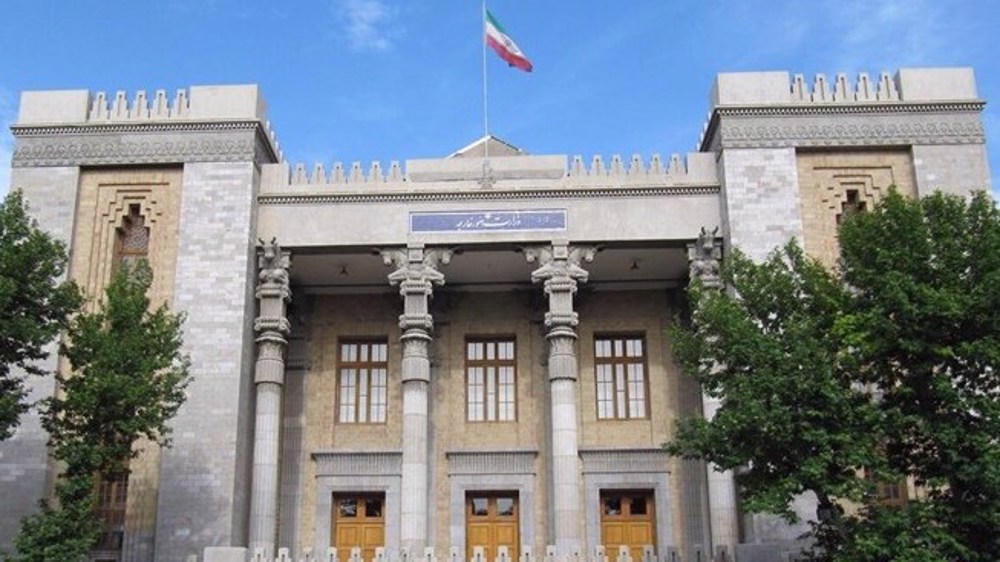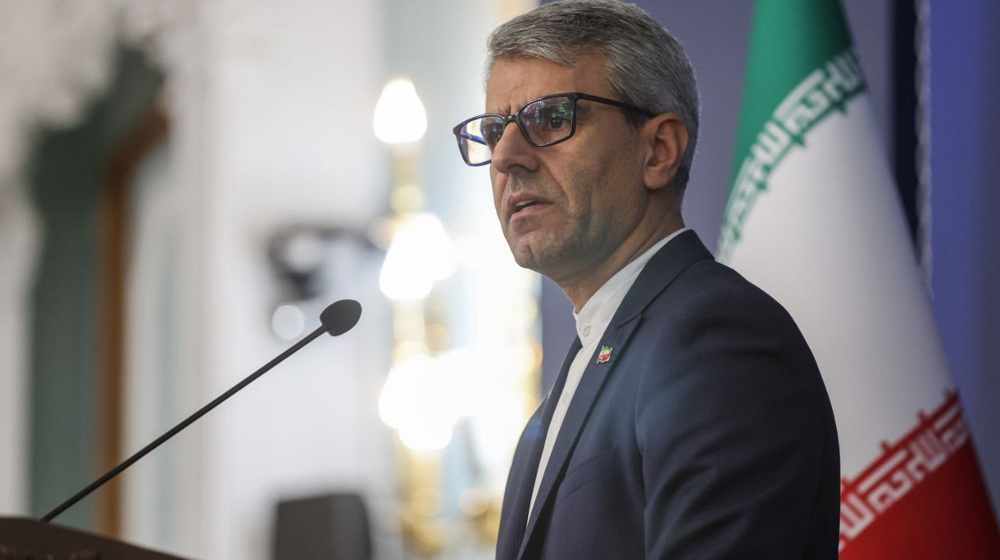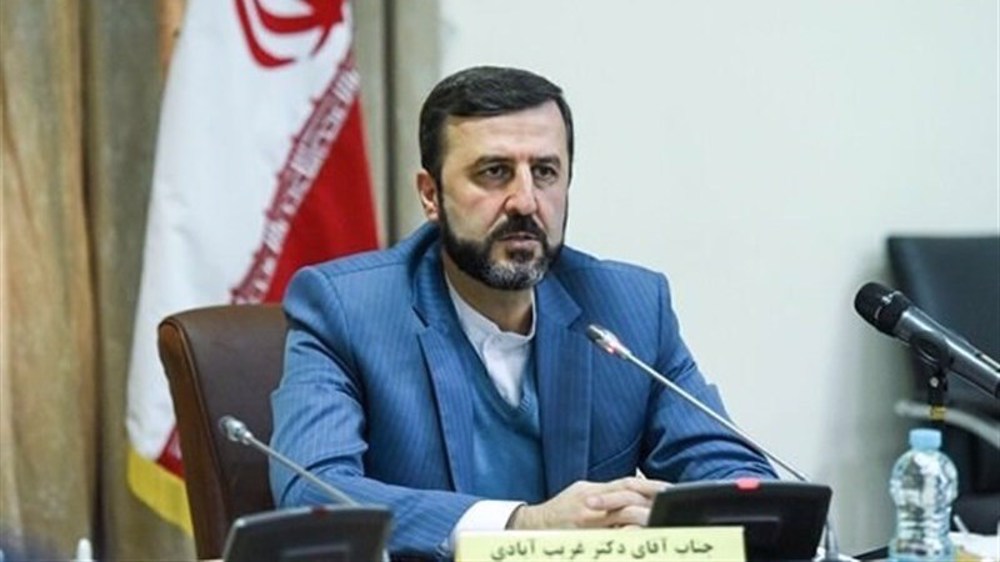E3 must accept consequences if it continues following Israel’s lead in JCPOA revival talks: Iran
Iran has slammed the latest "unconstructive and ill-considered" statement issued by the three European signatories to the 2015 nuclear deal, saying the E3 must accept the consequences if it continues to follow Israel’s lead.
"It is regrettable that by [issuing] such an ill-considered statement, the three European countries (France, Britain and Germany) have followed in the footsteps of the Zionist regime down a path that will lead to the failure of negotiations ," Iranian Foreign Ministry spokesman Nasser Kan'ani said on Saturday.
"It is obvious that if such an approach continues, the E3 should also accept responsibility for its consequences," he added.
Kan'ani warned the European trio against being swayed by third parties who have been against the negotiations and are now making their utmost effort to derail the talks.
He emphasized that at a time that diplomatic efforts and interactions are underway between the negotiating parties and the coordinator of the talks to revive the nuclear deal, officially known as the Joint Comprehensive Plan of Action (JCPOA), it is surprising that the E3 has issued such a statement regardless of a result-oriented approach sought in the negotiations.
The Iranian spokesperson once again reaffirmed the country's goodwill and serious intention to reach a final agreement on the removal of sanctions and said the negotiating sides have managed to achieve success at several junctures because of the Islamic Republic's initiatives and plans.
Pointing to the E3's inaction in recent months and its politically-motivated move to propose a resolution against Iran, which was passed by the International Atomic Energy Agency (IAEA) Board of Governors in June, the official advised the three countries "to play a more active role in providing a solution to end a few remaining points of disagreement instead of entering the phase of destroying the diplomatic process."
Kan'ani said Iran, as a responsible signatory of the Non-Proliferation Treaty (NPT), has had constructive cooperation with the IAEA and once again stressed the importance of avoiding politically-motivated moves and leveling baseless accusations against the Islamic Republic.
"It is unfortunate that European countries, on the one hand, fully support a regime that has hundreds of nuclear warheads and does not adhere to any of international non-proliferation mechanisms, and on the other hand, opposes the completely peaceful nuclear program of the Islamic Republic of Iran, which has been under the most extensive [IAEA] inspections," the spokesman added.
He advised the Europeans to make up for their failure to fulfill their obligations vis-à-vis the Iranian nation and to avoid the language of threat.
"The US' maximum failure in the maximum pressure campaign should be a lesson for all parties who unwittingly think that threats and sanctions can prevent the Iranian people from pursuing their maximum rights and securing their interests," Kan'ani said.
He once again expressed Iran's readiness to finalize an agreement on the JCPOA revival and said if there is the necessary will and resistance to foreign pressure, it is possible to reach an agreement quickly.
In a press release on Saturday, France, Britain and Germany raised serious doubts as to Iran’s intentions and commitment to a successful outcome on the JCPOA, claiming that Tehran's position contradicts its legally binding obligations and jeopardizes prospects of restoring the nuclear deal.
The European trio said they have "negotiated with Iran, in good faith, since April 2021, to restore and fully implement" the JCPOA, along with other participants to the deal and the United States.
The United States, under former president Donald Trump, abandoned the agreement in May 2018 and reinstated unilateral sanctions that the agreement had lifted.
The talks to salvage the agreement kicked off in the Austrian capital city of Vienna in April last year, months after Joe Biden succeeded Trump, with the intention of examining Washington's seriousness in rejoining the deal and removing anti-Iran sanctions.
Despite notable progress, the US indecisiveness and procrastination caused multiple interruptions in the marathon talks.
Four days of intense talks between representatives of Iran and the five remaining parties to the JCPOA ended on August 8 with a modified text proposed by the EU on the table.
Iran submitted its response to the EU draft proposal on August 15, a week after the latest round of talks wrapped up. After submitting its response, Tehran urged Washington to show "realism and flexibility" in order to reach an agreement.
However, it took almost ten days for the Biden administration to submit its response to Iran's comments on the EU draft.
VIDEO | Canadians preparing to hold more rallies in solidarity with Venezuela
VIDEO | Iranian national Mahdieh Esfandiari goes on trial for supporting Palestine
VIDEO | Italian farmers launch protest campaign against EU-Mercosur free trade deal
VIDEO | Trump’s Gaza ‘Board of Peace’ invitation sparks criticism in Pakistan
VIDEO | Iran, Iraq vow to deepen ties, hail US exit
Araghchi slams World Economic Forum for canceling his invitation
Iran condemns Argentina’s unfounded accusations against IRGC
VIDEO | Fighting British state











 This makes it easy to access the Press TV website
This makes it easy to access the Press TV website